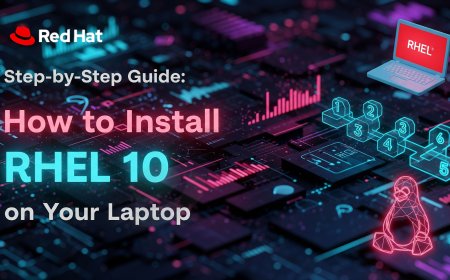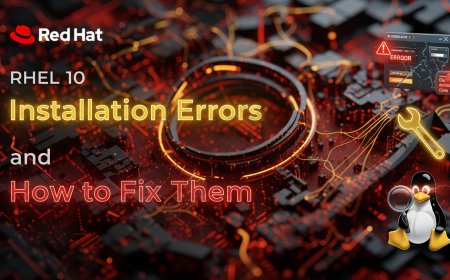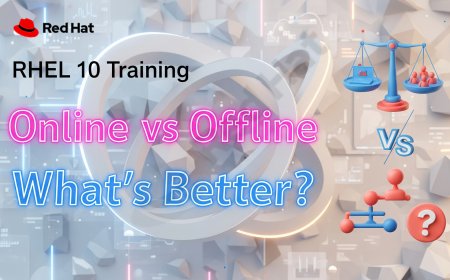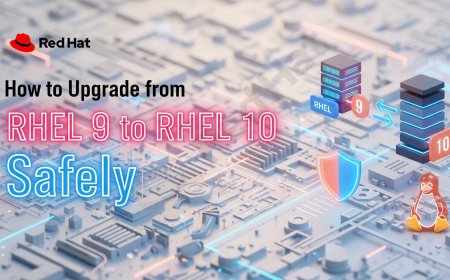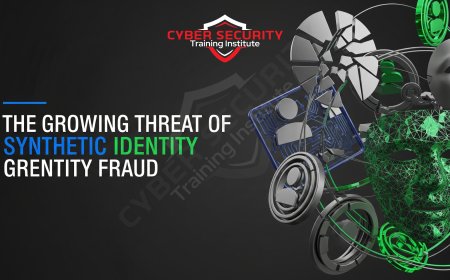Can AI Tools Like Darktrace Help in Cloud Security Management?
As businesses increasingly shift to cloud environments, securing sensitive data and systems has become a top priority. The cloud’s flexibility and scalability are game-changers, but they also introduce new risks like misconfigurations, unauthorized access, and sophisticated cyberattacks. Traditional security tools often struggle to keep up with the dynamic nature of the cloud, leaving organizations vulnerable. AI-powered tools like Darktrace are stepping in to address these challenges, offering real-time threat detection and autonomous responses. This blog explores how Darktrace and similar AI tools revolutionize cloud security management, making it easier for businesses to stay secure in a constantly evolving digital landscape.
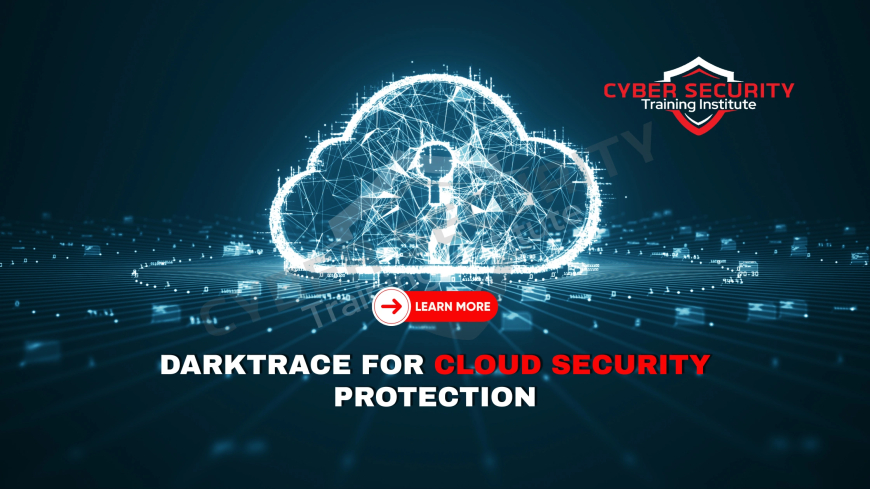
Table of Contents
- The Challenges of Cloud Security
- What is Darktrace?
- How Darktrace Enhances Cloud Security
- Key Features for Cloud Security Management
- Benefits of Using Darktrace in the Cloud
- Challenges of AI in Cloud Security
- Complementary Security Measures
- Real-World Applications
- The Future of AI in Cloud Security
- Conclusion
- Frequently Asked Questions
The Challenges of Cloud Security
Cloud environments are complex, with multiple providers, dynamic workloads, and ever-changing configurations. These factors create unique security challenges:
- Misconfigurations: Incorrect settings can expose data or systems to attackers.
- Unauthorized Access: Weak identity controls allow hackers to exploit stolen credentials.
- Lack of Visibility: Multi-cloud setups make it hard to monitor all assets.
- Evolving Threats: New attacks, like AI-driven malware, bypass traditional defenses.
A recent IDC survey noted that 79% of companies faced cloud breaches in the past 18 months, underscoring the need for advanced solutions like Darktrace.
https://www.darktrace.com/cyber-ai-glossary/how-to-differentiate-cloud-security-tools
What is Darktrace?
Darktrace is an AI-powered cybersecurity platform that uses self-learning AI to detect and respond to threats in real time. Its “Enterprise Immune System” mimics the human immune system, learning the normal behavior of users, devices, and networks to spot anomalies. Darktrace/Cloud, a specialized solution, extends this capability to cloud environments, integrating with platforms like AWS, Azure, and Google Cloud. Unlike traditional tools that rely on predefined attack signatures, Darktrace adapts to new threats, making it ideal for dynamic cloud settings.
Key aspects of Darktrace include:
- Self-learning AI for real-time threat detection.
- Integration with major cloud providers.
- Autonomous response to contain threats instantly.
- Comprehensive visibility across hybrid environments.
These features make Darktrace a leader in cloud security management.
https://cybermagazine.com/cloud-security/darktrace-ai-offers-real-time-cyber-resilience-for-cloud)
How Darktrace Enhances Cloud Security
Darktrace/Cloud monitors cloud environments by analyzing network traffic, user behavior, and configurations. It creates a “pattern of life” for each cloud asset, detecting deviations that could indicate threats like ransomware or misconfigurations. Its AI-driven approach allows it to respond autonomously, isolating compromised resources or alerting teams for action. For example, if a user accesses sensitive cloud data from an unusual location, Darktrace can flag and block it instantly.
Darktrace’s process includes:
- Behavioral Analysis: Learns normal activity to spot anomalies.
- Real-Time Detection: Identifies threats within seconds.
- Autonomous Response: Takes targeted actions to stop threats.
- Dynamic Visibility: Monitors multi-cloud setups for full coverage.
This approach ensures robust cloud security, as noted in Darktrace’s documentation.
https://www.darkreading.com/cloud-security/darktrace-unveils-cloud-native-security-solution-using-ai
Key Features for Cloud Security Management
Darktrace/Cloud offers specific features to address cloud security needs. The following table outlines these capabilities:
| Feature | Description | Cloud Security Benefit |
|---|---|---|
| Real-Time Threat Detection | Identifies anomalies in cloud traffic and user behavior. | Catches threats like ransomware instantly. |
| Cloud-Native Visibility | Maps cloud architectures dynamically. | Ensures full oversight of multi-cloud setups. |
| Autonomous Response | Isolates threats without human intervention. | Minimizes damage in real time. |
| Misconfiguration Detection | Flags incorrect cloud settings. | Prevents breaches due to errors. |
| Compliance Management | Ensures adherence to GDPR, HIPAA, etc. | Simplifies regulatory audits. |
These features, highlighted in Darktrace’s resources, make it a powerful tool for cloud security.
https://www.darktrace.com/products/cloud
Benefits of Using Darktrace in the Cloud
Darktrace offers significant advantages for cloud security management:
- Proactive Defense: Detects unknown threats before they escalate.
- Automation: Reduces manual workload, saving time for security teams.
- Scalability: Adapts to growing cloud environments seamlessly.
- Comprehensive Visibility: Provides a unified view across multi-cloud setups.
- Compliance Support: Helps meet regulatory requirements like GDPR.
These benefits, noted in industry reviews, make Darktrace a top choice for cloud security.
Challenges of AI in Cloud Security
While powerful, AI tools like Darktrace face challenges:
- Cost: High licensing fees can strain smaller budgets.
- Complexity: Setup and integration require technical expertise.
- False Positives: Legitimate actions may be flagged, needing review.
- Privacy Concerns: Monitoring user behavior raises ethical issues.
- Skill Gaps: Teams need training to use AI tools effectively.
Businesses can address these with proper planning and training.
https://www.darktrace.com/cyber-ai-glossary/how-to-differentiate-cloud-security-tools
Complementary Security Measures
Darktrace works best alongside other defenses:
- Employee Training: Educate staff on secure cloud practices.
- Multi-Factor Authentication (MFA): Adds extra login security.
- Regular Audits: Check configurations to prevent missteps.
- Encryption: Protects data in transit and at rest.
- Zero Trust Policies: Verify all users and devices.
These measures enhance Darktrace’s effectiveness in cloud security.
Real-World Applications
Darktrace has proven effective in cloud security:
- A bank used Darktrace/Cloud to detect a misconfiguration exposing customer data, preventing a breach.
- A healthcare provider stopped a ransomware attack in its cloud infrastructure, protecting patient records.
- A retail firm identified unauthorized access in its AWS environment, blocking data theft.
These cases, shared in cybersecurity discussions, highlight Darktrace’s real-world impact.
The Future of AI in Cloud Security
AI tools like Darktrace will shape cloud security’s future:
- Enhanced AI: More accurate algorithms to reduce false positives.
- Predictive Analytics: Anticipating threats before they occur.
- Broader Integration: Seamless connectivity with IoT and SaaS.
- Automated Recovery: Restoring systems post-attack with AI.
Darktrace’s innovations, noted in its 2025 AI Cybersecurity Report, position it to lead this evolution.
Conclusion
AI tools like Darktrace are transforming cloud security management by offering real-time threat detection, autonomous responses, and comprehensive visibility. With cloud environments becoming prime targets for cyberattacks, Darktrace’s self-learning AI addresses challenges like misconfigurations and unauthorized access, making it a vital tool for businesses. While challenges like cost and complexity exist, combining Darktrace with training, MFA, and audits creates a robust security strategy. As threats evolve, AI-driven solutions will be essential for organizations to protect their cloud infrastructure, ensuring data security and operational continuity in a digital world.
Frequently Asked Questions
What is Darktrace/Cloud?
It’s an AI-powered solution for real-time threat detection and response in cloud environments.
Why is cloud security important?
Clouds store sensitive data, making them targets for breaches and ransomware.
How does Darktrace detect cloud threats?
It uses AI to learn normal behavior and flag anomalies like unusual access.
Can Darktrace prevent misconfigurations?
Yes, it identifies incorrect settings that could expose data.
What is a cloud misconfiguration?
It’s an incorrect setting that leaves cloud systems vulnerable to attacks.
Does Darktrace work with AWS?
Yes, it integrates with AWS, Azure, and Google Cloud for full coverage.
Can Darktrace stop ransomware?
Yes, it detects and blocks ransomware in real time, minimizing damage.
What is autonomous response?
It’s when AI takes action, like isolating threats, without human input.
Is Darktrace expensive?
It can be costly, but scalable options suit various budgets.
How does Darktrace ensure compliance?
It monitors data and configurations to meet GDPR, HIPAA, and other standards.
What is multi-cloud visibility?
It’s the ability to monitor multiple cloud providers in one platform.
Can Darktrace reduce IT workload?
Yes, it automates threat detection and response, saving time.
What are false positives?
They’re when legitimate actions are flagged as threats, needing review.
Does Darktrace require cloud expertise?
Some expertise helps, but its interface simplifies management.
What is zero trust security?
It verifies every user and device, reducing cloud risks.
Can Darktrace protect hybrid clouds?
Yes, it secures both on-premises and cloud environments.
How fast does Darktrace respond to threats?
It detects and responds within seconds to minutes.
What is a cloud-native solution?
It’s software designed specifically for cloud environments, like Darktrace/Cloud.
Can Darktrace detect insider threats?
Yes, it flags unusual user behavior in cloud systems.
What’s the future of cloud security?
It includes advanced AI, predictive analytics, and automated recovery.
What's Your Reaction?
 Like
0
Like
0
 Dislike
0
Dislike
0
 Love
0
Love
0
 Funny
0
Funny
0
 Angry
0
Angry
0
 Sad
0
Sad
0
 Wow
0
Wow
0






